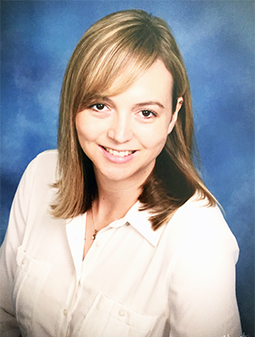Latest News Archive
Please select Category, Year, and then Month to display items
12 October 2020
|
Story Arina Engelbrecht
|
Photo Supplied
 Arina Engelbrecht from Organisational Development and Employee Well-being believes physical activity has a number of benefits for one’s health, including stress relief.
Arina Engelbrecht from Organisational Development and Employee Well-being believes physical activity has a number of benefits for one’s health, including stress relief.
Being physically active plays a big role in preventing the development of mental-health problems and in improving the quality of life of people experiencing mental-health problems.
Treatment for depression
Physical activity can be an alternative treatment for depression. It can be used as a stand-alone treatment or in combination with medication and/or psychological therapy. It promotes all kinds of changes in the brain, including neural growth, reduced inflammation, and new activity patterns are formed that promote feelings of calm and well-being. It releases endorphins – powerful chemicals in the brain that energise your spirit and make you feel good.
Physical activity can be very effective in relieving stress. Research in adults has found that physically active individuals tend to have lower stress levels compared to individuals who are less active. It also leads to improved sleep. When a person sleeps better and feels more rested, overall quality of life improves. They cope better with daily life stressors.
Reduce Alzheimer's risk
Regular physical activity can reduce your risk of developing Alzheimer's disease by up to 50%. It can also slow down further deterioration in those who have already started to develop cognitive problems. It stimulates the brain’s ability to maintain old connections as well as to make new ones.
A study asked people to rate their mood immediately after periods of physical activity (e.g. going for a walk/run, cycling, doing housework) and periods of inactivity (e.g. reading a book or watching television). Researchers found that participants felt more content, more awake, and calmer after being physically active compared to after periods of inactivity.
In conclusion, people who are physically active feel a sense of well-being, feel more energetic throughout the day, sleep better at night, have sharper memories, and feel more relaxed and positive about themselves and their lives.
“Being physically active not only changes your body, it changes your mind,
attitude, and your mood.” – Arina Engelbrecht
Seasoned international pianist appointed at the OSM
2016-02-05

Dr Grethe Nöthling |
The Odeion School of Music is delighted to welcome Dr Grethe Nöthling as a new member of its dynamic performance faculty.
Dr Nöthling has been appointed as principal piano lecturer. She has won several national music competitions, and is the recipient of numerous awards and bursaries, including the University of South Africa overseas scholarship for teachers in 2003.
Musician and pedagogue par excellence
From 1989 to 2005, Dr Nöthling performed as soloist with all major South African Symphony Orchestras. She obtained a Bachelor of Music Degree (magna summa cum laude), specialising in Performance from the University of Pretoria under the tutelage of Professors Ella Fourie and Joseph Stanford.
She furthered her studies in the United States of America at the Cleveland Institute of Music where she received a Master’s of Music Degree in 2008 under the guidance of Daniel Shapiro and Paul Schenly.
Dr Nöthling obtained a Doctorate of Musical Arts Degree (2014) from the University of Iowa (UI) in the USA under Professor Uriel Tsachor. During her studies at the U of I, she was awarded a teaching assistantship, and performed with the university’s New Music Ensemble. During a ten-year residency in the USA, she has performed extensively as both soloist and chamber musician.
Inspiration for aspiring musicians
“It is my hope to be an inspiration for young and upcoming musicians both as pedagogue and performing artist. In order to consider the unique gifts and challenges of every individual student, I am of the opinion that is imperative to be very flexible and adjustable from a methodological and musical perspective,” said Dr Nöthling.